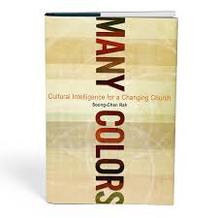 In Many Colors: Cultural Intelligence for a Changing Church, Soong-Chan Rah talks about the power of lament. “In his book of Lamentations, Jeremiah responds to the tragedy and suffering of the fallen city of Jerusalem. It is appropriate to lament a situation that is not a fulfillment of God’s plan of shalom for the world.” In the U.S. we love stories of triumph and victory. Our movies reveal our expectation that even if our team is the worst at the start of the season, we can win the championship at the end with a lot of hard work and a little luck. “American history tends to be filled with a sense of triumphalism… There have been, however, times in American history for which we should recognize the need to lament… Celebration without suffering can become dysfunctional and provide a myopic view of God’s work.” Rah goes on to explain, “Cultural intelligence requires the understanding of history from the various perspectives and experiences. Focusing mainly on the history of the dominant culture in the United States is insufficient. We need to hear stories from other communities in order to gain a fuller understanding of how the gospel of Christ is at work throughout the whole range of cultures and ethnicities.” Unfortunately, many of these “stories” are not always happy ones. They may not fit our preference for triumph, success, and positivity. But they are still OUR stories. One of the things I love about the Bible is that it does not sweep under the rug faults, failures, and outright evil. It bares it all with raw honesty. It then invites us to respond with truth and honesty to these events and lament. Wailing over tragedy and loss is healthy and right. Jesus cried at Lazarus tomb even though he went there with the express purpose to “wake him up” (i.e.: raise him from the dead). Finding solutions to the problems we face does not eradicate the emotional side of suffering and pain. Yes, we should work to bring about changes to the causes of tragedy, but we should also lament at the tragic stories which form our collective past and loss we experience in the present. Comments are closed.
|
Categories
All
Contributing Authors
|

 RSS Feed
RSS Feed